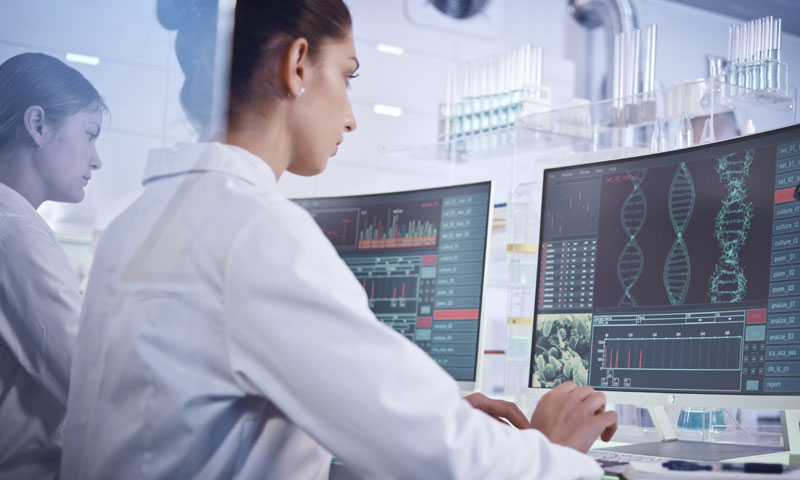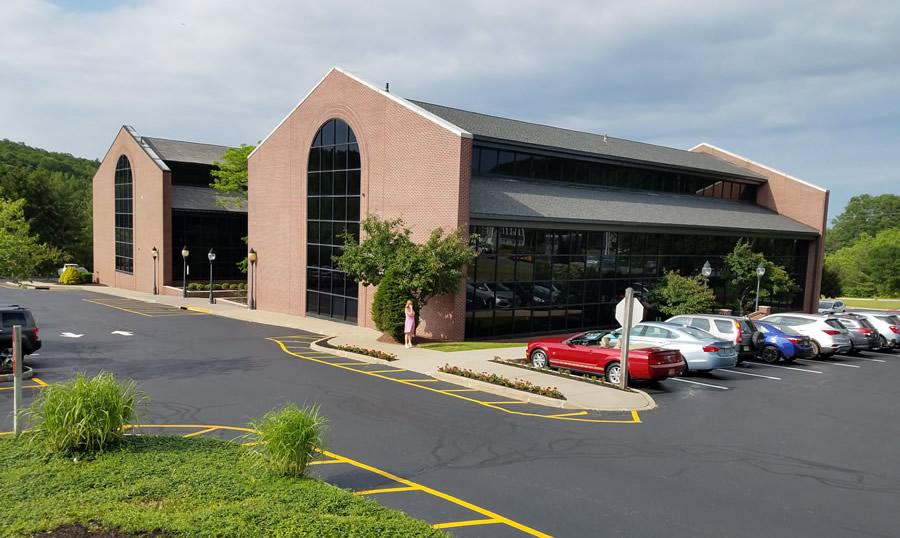Many people with varicose veins wonder if genetics played a role in their development—or if it destines them to get varicose veins if a parent has them. Is the answer all in your genes? And if it’s true that genetics plays a role in varicose veins, is there anything you can do to help?
To quote Sam Kean, an American science writer, “Genes are like the story, and DNA is the language that the story is written in.” But can you change your story?
According to the National Human Genome Human Research Institute, a genome is another name for the entirety of your DNA. Your DNA determines your specific genetic code and all the information needed to build and develop the one and only you! Each person has their own unique genome.
Learning about your own genome will provide insights into your own health and help you make healthful choices throughout your life.
So, there are things you can do, and good choices to make, to help yourself stay healthy. This applies to vein health as well.
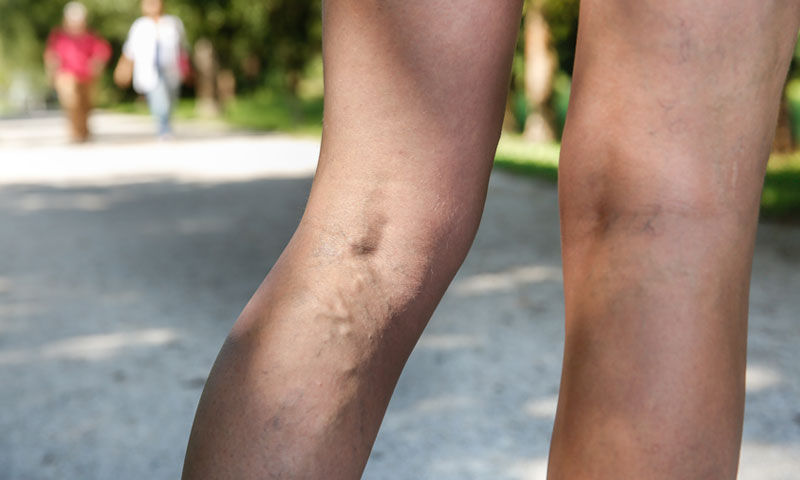
First, A Word About Varicose Veins
If a person has chronic venous insufficiency, they will develop varicose veins. Chronic venous insufficiency is a condition that makes it difficult for blood to flow back up to your heart easily. This occurs due to a problem with the tiny valves in the veins, or a weakening of the vein walls.
Chronic venous insufficiency (CVI) usually affects veins in the legs. Blood flows in both directions and pools in the legs. The veins enlarge. We easily seen these enlarged veins since they usually bulge out of the skin. These veins are varicose veins.
Is Chronic Venous Insufficiency Caused by Genetics?
Varicose veins are more likely to occur as a person ages. But what role does genetics play? Do gender, hormones, and ethnicity play a role?
Let’s see what the studies say.
Researchers have reported that they believe genetic factors play a big role in the development of varicose veins.
But the specific genetic factors influencing the development of varicose veins remain largely unknown and poorly understood. This, in part, is because there are many factors that can contribute to the development of varicose veins. These factors range from hereditary factors to weight and lifestyle.
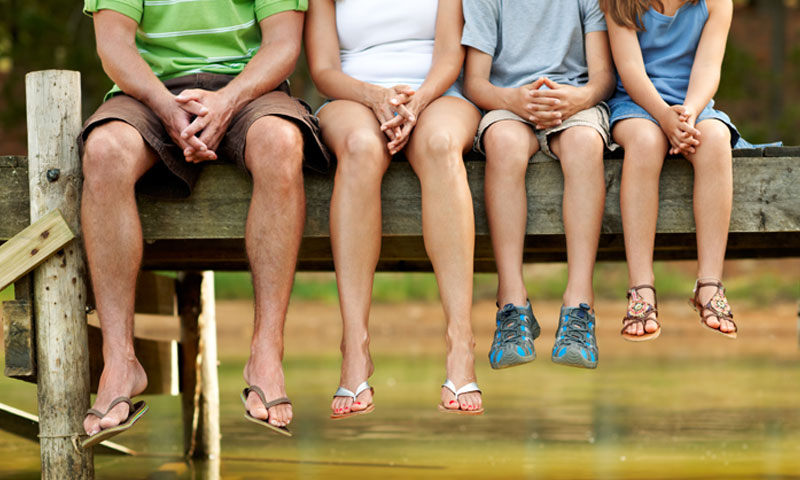
Gender and Varicose Vein Development
In one case-control study on 134 families, researchers found the following results:
- If both parents had varicose veins, the risk for children of developing them was 90%.
- If one parent had varicose veins, the risk for children developing them was 25% for males and 62% for females.
- When only one parent had varicose veins, there seemed to be no correlation between the sex of the affected parent and the varicose veins in children.
They concluded their findings excluded a sex-linked pattern of inheritance.
Women have a greater chance of developing varicose veins than men do. How much genetics plays a role in this, and which genes are involved, is still to be determined.
Ethnicity and Varicose Vein Development
In a study of 2,211 people, chronic vein disease (the earliest stage is spider veins) “appeared to be more common in non-Hispanic whites than in Hispanics, African-Americans, and East Asians.” However, the study went on to say that these results were most likely linked with social habits; they did not seem to be linked to genetics.
A study of four ethnic groups in Southern California, using visual examination and ultrasound, showed that:
- Varicose veins were present in 33% of woman and 17% of men, with no ethnic differences
It concluded that the presence of varicose veins varied by gender but not by ethnicity.
Hormones and Varicose Vein Development
Today, it is an accepted fact that women’s hormones can play a role in the development of varicose veins. During pregnancy, elevated hormonal levels of estrogen and progesterone can thin the walls of veins, making pregnant women more susceptible to chronic venous insufficiency. Estrogen can also cause damage to the valves inside veins.
Menopause also will affect the health of women’s veins, but in the opposite way. During this time, a woman’s hormone levels decrease. This makes the walls of the veins thicker, less flexible, and more constricted.
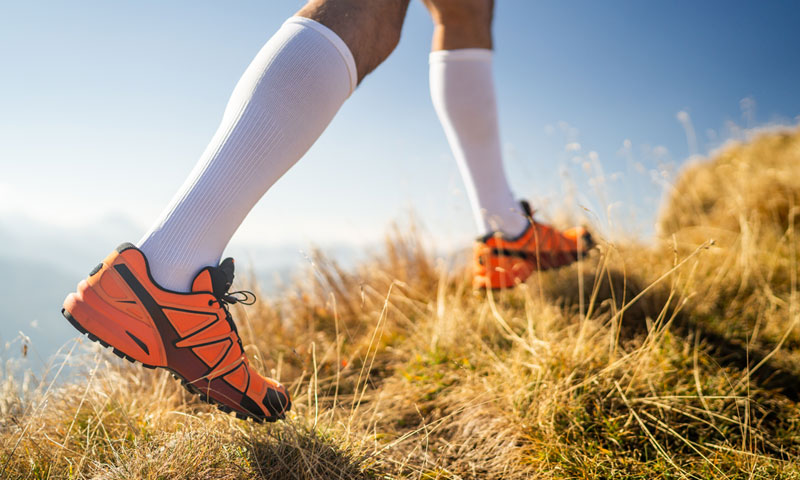
How To Help Prevent Hereditary Varicose Veins
Clearly, there are some things about varicose veins that are out of our control—they are written somewhere in your DNA! But there are things you can do to help prevent them.
- Keep at a healthy weight
- Exercise—walking is great for vein health
- Try to avoid sitting or standing still for long periods of time
- Wear compression socks or stockings
- Eat a healthy diet, including complex carbs and protein
- Avoid salty food
- Drink lots of water
If you have varicose veins . . .
If you have varicose veins that are simply unattractive, or that are causing you discomfort, make an appointment to see us at NJVVC. At our state-of-the-art vein center, you can have a complete vain evaluation, and receive treatment for your varicose veins.

